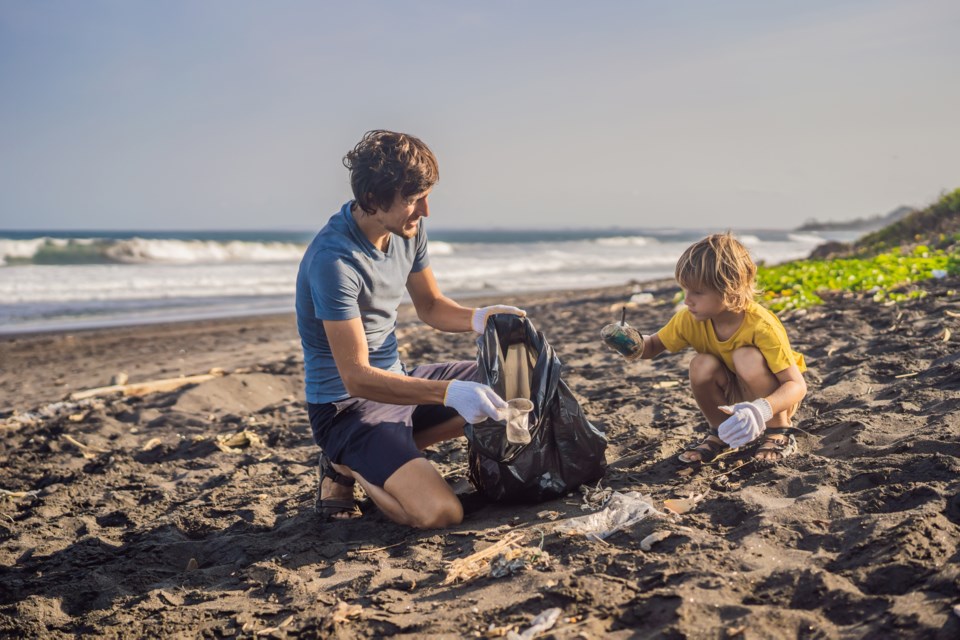It might not be a typical approach, but it can broaden your horizons to show ways you can also be of service to others.
Here are four with a twist for improving your relationship with nature in 2022 and beyond.
Exercise more consideration for how your actions impact the environment
We each have an reflecting how we value, manage and ultimately relate to nature. Balancing the scales of reciprocity between us and nature – how much we give and take – can improve this relationship in many ways. Whether it’s our addiction to that pile up in landfills or that warm the planet, a mishandled relationship with nature is not doing us or the Earth any favors.
In 2022, we can all take more responsibility for how our actions exacerbate environmental problems. We can also encourage governments and businesses to make it easier for people from diverse socioeconomic backgrounds to protect the environment. This includes making recycled goods affordable and reliable public transportation widely accessible.
Check out the U.S. Environmental Protection Agency’s describing some very simple ways to reduce waste at home, work, in our communities and during the holidays. Tips from the website include turning off or unplugging lights during the day, reusing packaging materials and using online billing services instead of paper mail.
Lose the weight of social injustice – it harms nature, too
The perils of social injustice stress multiple aspects of society. Racism and inequality can lead to , and they also have .
A described how practices such as redlining and residential segregation led to unequal access to nature, excess pollution and biodiversity loss. These practices and industries that harm environmental quality in marginalized communities. They also left neighborhoods with fewer parks and in summer and benefit the planet.
Perpetuating social ills like systemic racism and is detrimental to the environment, marginalized people and society as a whole.
To help turn this around, you can speak out in your community. Join groups that are trying to promote environmental protection and social justice and are bringing nature back to communities. Call your city, state and Congressional leaders to urge them to take action. Also, refer to the ’s section on making diversity initiatives successful for concrete ways that you can actualize this in your place of work.
Learn something new about nature and how to reduce harm to the environment and yourself
Clean air, water and soil are fundamental for our survival, but research shows many people lack basic to know how to protect themselves.
In 2022, get to know your own impact on the environment. Read more and start exploring ways to preserve the integrity of your area’s natural resources. For example, find out where you can stay abreast of local land-use decisions that impact the environment and your overall community.
You can also support local educators and encourage them to bring the environment into lessons. Environmental issues overlap many other subjects, from history to health. includes a framework and materials for educators to help students expand their environmental literacy.
Staying plugged in that discuss the latest research can enhance awareness. You can also try tying environmental facts and knowledge into your game night and team-building activities.
Spend more time with family and friends in nature
Studies show that spending time in nature, including urban green spaces, can improve your relationship with nature and with others.
Time in nature can increase . Throughout the pandemic, many people discovered the outdoors as a place to decompress and reduce stress. Spending more time outdoors can encourage social interactions that benefit health, and encourage use of these spaces, which can help protect them for the future.
Here are that outline best practices to enhance parks and recreation near you. Also, here are ways to make more inclusive for families in diverse communities.
Collectively, thinking about our relationship with nature and finding ways to protect the environment can help us be better stewards of the planet.
, Assistant Professor of Public Health, . Viniece Jennings serves as a consultant to the National Recreation and Parks Association on a diversity, equity and inclusion initiative. She is also a colleague to Dr. Tony Reames in the JPB Environmental Health fellowship at Harvard University's T.H. Chan School of Public Health.
This article is republished from under a Creative Commons license. Read the .




